Related Research Articles
The Threepenny Opera is a "play with music" by Bertolt Brecht, adapted from a translation by Elisabeth Hauptmann of John Gay's 18th-century English ballad opera, The Beggar's Opera, and four ballads by François Villon, with music by Kurt Weill. Although there is debate as to how much, if any, Hauptmann might have contributed to the text, Brecht is usually listed as sole author.

Kurt Julian Weill was a German-born American composer active from the 1920s in his native country, and in his later years in the United States. He was a leading composer for the stage who was best known for his fruitful collaborations with Bertolt Brecht. With Brecht, he developed productions such as his best-known work, The Threepenny Opera, which included the ballad "Mack the Knife". Weill held the ideal of writing music that served a socially useful purpose, Gebrauchsmusik. He also wrote several works for the concert hall and a number of works on Jewish themes. He became a United States citizen on August 27, 1943.
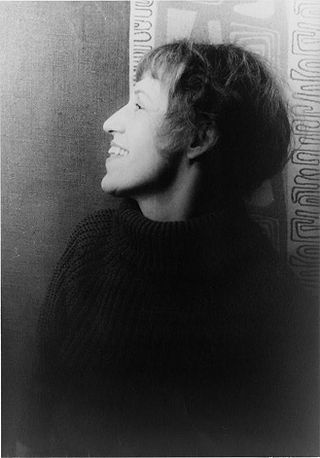
Lotte Lenya was an Austrian-American singer, diseuse, and actress, long based in the United States. In the German-speaking and classical music world, she is best remembered for her performances of the songs of her first husband, Kurt Weill. In English-language cinema, she was nominated for an Academy Award for her role as a jaded aristocrat in The Roman Spring of Mrs. Stone (1961). She also played the murderous and sadistic Rosa Klebb in the James Bond movie From Russia with Love (1963).

Gunther Alexander Schuller was an American composer, conductor, horn player, author, historian, educator, publisher, and jazz musician.

Yvan Goll was a French-German poet who was bilingual and wrote in both French and German. He had close ties to both German expressionism and to French surrealism.
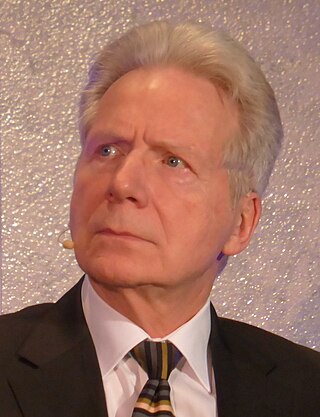
John Francis Mauceri is an American conductor, producer, educator and writer. Since making his professional conducting debut almost half a century ago, he has appeared with most of the world's great orchestras, guest-conducted at the premiere opera houses, produced and musically supervised Tony and Olivier Award-winning Broadway musicals, and served as university faculty and administrator. Through his varied career, he has taken the lead in the preservation and performance of many genres of music and supervised and conducted important premieres by composers as diverse as Debussy, Stockhausen, Korngold, Hindemith, Bernstein, Sibelius, Ives, Elfman and Shore. He is also a leading performer of music banned by the Third Reich and especially music of Hollywood's émigré composers.

Treemonisha (1911) is an opera by American ragtime composer Scott Joplin. It is sometimes referred to as a "ragtime opera", though Joplin did not refer to it as such and it encompasses a wide range of musical styles. The music of Treemonisha includes an overture and prelude, along with various recitatives, choruses, small ensemble pieces, a ballet, and a few arias.

Sigurd is an opera in four acts and nine scenes by the French composer Ernest Reyer on a libretto by Camille du Locle and Alfred Blau. Like Wagner's Ring of the Nibelung, the story is based on the Nibelungenlied and the Eddas, with some crucial differences from the better known Wagnerian version. The whole opera can best be described as an epic with techniques of the grand opera.

Askold's Grave is an opera in four acts by Alexey Verstovsky with a libretto by Mikhail Zagoskin.
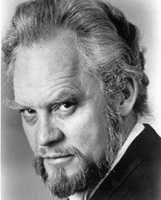
Thomas Stewart was an American bass-baritone who sang an unusually wide range of roles, earning global acclaim particularly for his performances in Wagner's operas.

Muriel Salina Costa-Greenspon was an American mezzo-soprano who had a lengthy career at the New York City Opera from 1963 to 1993.

Der Zar lässt sich photographieren is an opera buffa in one act by Kurt Weill, op. 21. The German libretto was written by Georg Kaiser, and Weill composed the music in 1927. It is a Zeitoper, a genre of music theatre which used contemporary settings and characters, satiric plots which often include technology and machinery. Musically the Zeitoper genre tends to be eclectic and borrow from Jazz. The genre has practically disappeared from the world's opera houses. Historically the Zeitoper came to an abrupt end with the Nazi period, and after the war the cultural institutions were perhaps hesitant to return to the lighter, often decadent and comic operas written before the holocaust changed the artistic perspective. This conjecture is supported by the statistical fact that of all of Weill's, Schönberg's, Hindemith's and Krenek's works – it is these very shorter, satirical Zeitoper works that are no longer performed.

Der Silbersee: ein Wintermärchen is a 'play with music' in three acts by Kurt Weill to a German text by Georg Kaiser. The subtitle is an allusion to Heinrich Heine's 1844 satirical epic poem, Germany. A Winter's Tale.

Der Protagonist is an opera in one act by Kurt Weill, his Op. 15. The German libretto was written by Georg Kaiser based on his own play of the same name of (1920). Weill's first surviving opera has been described as Literaturoper.
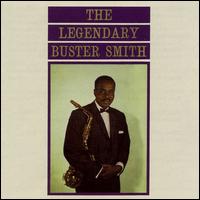
The Legendary Buster Smith is the debut and only solo album released by saxophonist Buster Smith, recorded and released in 1959. The album features five original compositions by Smith, alongside versions of "September Song" by Kurt Weill and "Organ Grinder's Swing" by Will Hudson.

Die Bürgschaft is an opera in three acts by Kurt Weill. Caspar Neher wrote the German libretto after the parable Der afrikanische Rechtspruch by Johann Gottfried Herder. Composed from August to October 1931, it was premiered on 10 March 1932 at the Städtische Oper in Berlin, Germany.

The Eternal Road is an opera-oratorio with spoken dialogue in four acts by Kurt Weill with a libretto, by Austrian novelist and playwright Franz Werfel and translated into English by Ludwig Lewisohn.
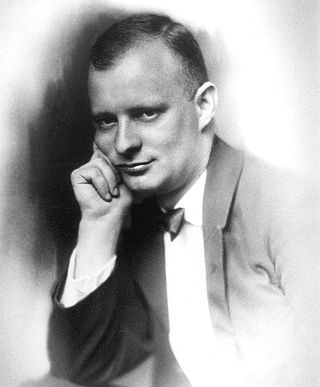
Hin und zurück is an operatic 'sketch' in one scene by Paul Hindemith, with a German libretto by Marcellus Schiffer. It acts as a parody of conventional opera tropes featuring a coloratura ariette, a jealousy duet, and a terzet for the tenor, baritone and bass.
Rüdiger Wohlers is a German tenor.
Dorothea Chryst, also Dorli-Maria Chryst is a German operatic and operetta soprano.
References
- ↑ Jazz & the Germans, Michael J. Budds, 2002, p. 103: "Weill's surrealist collaborations with Ivan Goll – notably Royal Palace – portray the need for the human spirit to ... Although Royal Palace is now considered by some scholars to be a key work in the stage music career of Kurt Weill ..."
- ↑ Weill's Musical Theater: Stages of Reform, Stephen Hinton, 2012, p. 85: "In 2000, two productions occurred within weeks of each other, both using the orchestrated version prepared for a performance in 1971 by Gunther Schuller and Noam Sheriff, one fully staged, the other a concert performance"